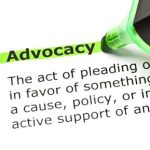Category Archives: Criminal Defense

Extradition Treaties
If you went to elementary school in South Florida, sing along. “Miss Lucy had a baby. She named him Tiny Tim. She put him in the bathtub to see if he could swim.” Keep singing until you get to the part about “the lady with the alligator purse.” You have never seen an alligator… Read More »

Twins and Forensic Science
Prolific authors of formula fiction, sometimes euphemistically known as genre fiction, always eventually run out of ideas. Once an author publishes more than about 50 novels, you often find that the plots become increasingly far-fetched, or that they seem like rehashes of novels that the same author wrote decades earlier. An author under pressure… Read More »

The Many Faces of Prosecutorial Misconduct
Unless you have experienced it firsthand, it might seem strange to hear people complain that “It’s not fair” in the context of a criminal prosecution or trial. Isn’t that something that children say when adults try to impose a punishment or stop them from doing something they want to do? Consider that defendants in… Read More »

No, You Can’t Pay Your Bail With Drug Money
Police know that there are few scarier experiences than driving along one of South Florida’s delightfully flat roads, just minding your business and enjoying the effects of the evening’s weed, and then an hour later, being in a jail cell-like room in a police station, with a possible prison sentence awaiting you. Some people… Read More »

What Does Research Methodology Have to Do With Your Criminal Case?
The school science fair, with the hallways of your school decked with triptych poster boards explaining the process and results of experiments conducted by students outside of school, are a distant memory, and unless you later sought employment in a scientific field, neither have you. Today, every time you respond to a notification on… Read More »

In Praise of Non-Human Witnesses
These days, machines seize every opportunity to speak on behalf of humans and make decisions on our behalf, and often we simply resign ourselves to it. Google auto completes our search queries, showing us what it wants us to see before we have even completed our thought about what we want to look for. … Read More »

Drug Mule Diaries
When you are a kid, your parents, your teacher, and the media send the message that music stars are the coolest thing in the world, and drugs are the scariest. News reports full of police sirens and crime scene tape and “drugs are bad” assemblies in school focus on what drugs will do to… Read More »

Product Tampering – Is It Illegal?
Game shows where contestants answer trivia questions, solve puzzles, or perform athletic feats may seem outdated, but the popularity of reality TV shows about people being horrible to each other never go out of style. If you have no money and no time commitments this summer, you can easily pass the time watching YouTube… Read More »

The Miranda Warnings and Florida Criminal Cases
Almost everyone has heard a police officer say, “You have the right to remain silent” in a movie or TV show about a criminal case, but they usually don’t show what happens next. Fictional dramas use that phrase, which is part of the Miranda warnings to show that things are getting serious; the police… Read More »

What To Know About Opening Statements
Imagine the opening sequences from the most iconic movies set in Miami. From Scarface to The Birdcage and from One Night in Miami to the Bad Boys series, the first impression the audience gets is that of the beauty and peril of South Florida. The images tell you where the story that is about… Read More »

Jury Instructions – What You Should Know
If you think that competitive eating is impressive, try watching a competitive memorization tournament. It’s amazing that competitive eaters can fit so much food in their stomachs, but it is equally impressive that competitive memorizers can fit so much information in their brains. Competitive memorizers do not have a superhuman ability to memorize; being… Read More »

Questions of Law and Questions of Fact in Florida Criminal Trials
As Florida is an equitable distribution state, where judges at divorce trials can decide on an individual basis the fairest way to divide a couple’s marital property and debts, many Floridians who have survived divorces so acrimonious that they went to trial balk at the judges’ interpretations of justice. In criminal cases, though, there… Read More »

How Does Your Criminal Case Affect Your Career?
Every so often, you will hear stories about people whose career prospects improved after they got convicted of a crime. In today’s gossip-hungry world, you can probably make money after you get out of prison by granting interviews to journalists and YouTubers and talking about the crime to which you pleaded guilty, if the… Read More »

Brady Disclosures and Florida Criminal Cases
The rights of defendants in criminal cases have been part of United States law since the Bill of Rights was codified, but several Supreme Court decisions in the 1960s made the rules clearer about what constitutes a violation of a defendant’s rights. In a Dick Tracy comic strip from the 1960s, the cartoon detective… Read More »

What Does It Mean When the Prosecution Terminates Your Charges
Judges in criminal court look plenty scary with their black robes, their gavels, and their somber expressions, but so much of the outcome of a criminal case is not up to them. Yes, they get to decide which evidence is admissible, and they have the final decision about which jurors will get to participate… Read More »

Don’t Fall for the Reid Technique
Somewhere in your nightmares, a scary monster tells you about something bad that has happened. Your mind starts to race with worries, but the monster’s affect remains neutral; somehow, this makes the situation even scarier. The monster leaves the room for a few minutes, but then he comes back and starts talking to you… Read More »

Probable Cause Hearings
Police sometimes arrest people for no good reason. Unfortunately, protesting in the moment that you did not do anything wrong and the officer had no reason to arrest you does not make things better and usually makes them even worse. The good news is that you do not always have to go all the… Read More »

Lack of Criminal Intent
The alibi defense is a nifty defense if you are being accused of a crime that requires you to be physically present. If eyewitnesses claim that they saw you stealing or vandalizing property or selling drugs, but there are no photos to back up their claims, you can argue that the person they saw… Read More »

How Attorney-Client Privilege Can Help You in Your Criminal Case
You value your privacy, whether you realize this or not. Many decisions have the underlying motivation of wanting to protect your privacy. You think carefully about what you post publicly online, if anything. Data privacy is a factor in many of your online behaviors, from your choice of software to the cookie settings you… Read More »

A Good Old-Fashioned Alibi Is Sometimes Your Best Defense
In a dinner theater murder mystery, all of the characters have a motive to commit the crime, and only some of them have an alibi. Likewise, when you play parlor games on rainy afternoons at summer camp, one of them often involves coming up with creative alibis to explain why you did not commit… Read More »


